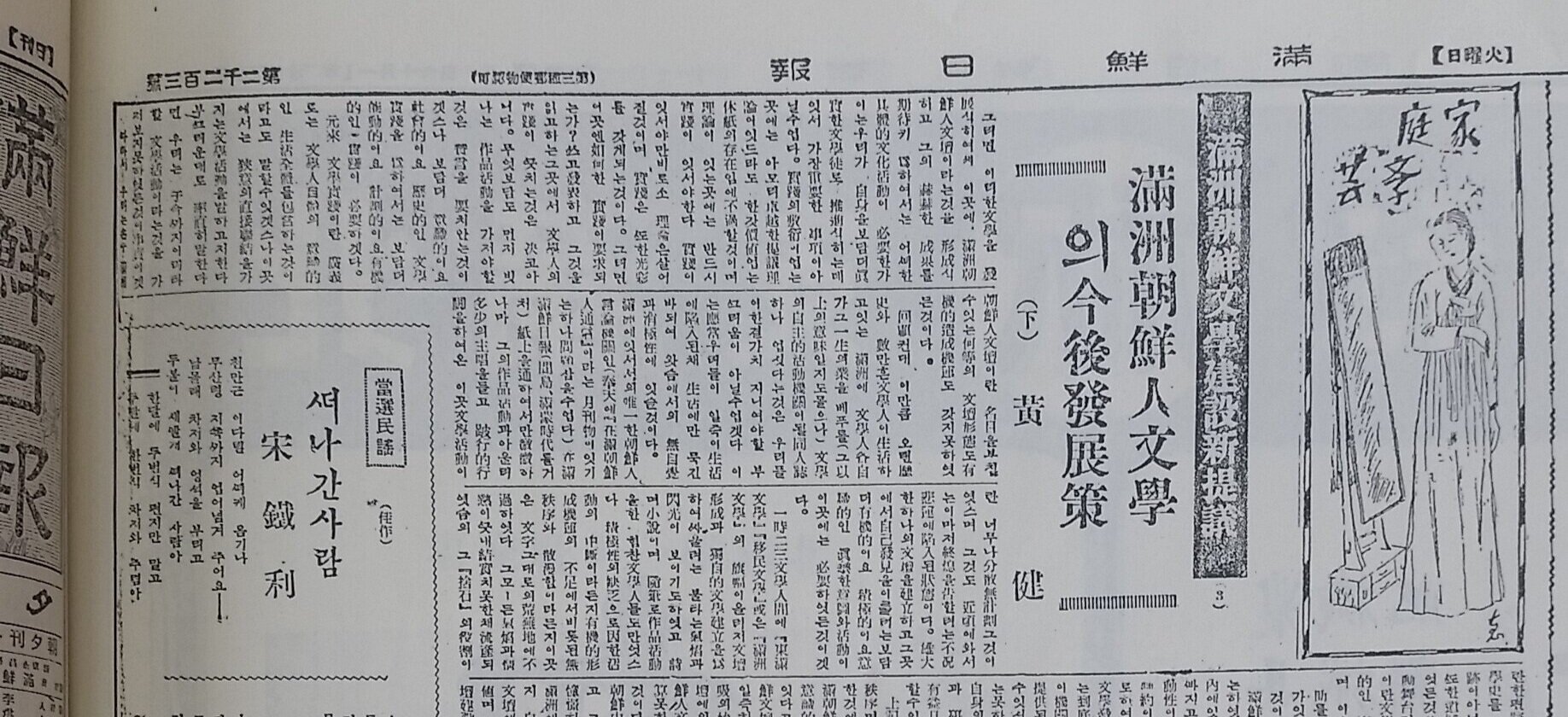Manchuria Literarian
“A literarian is someone who loves literature so much that he or she wants to share it with as many people as possible...” (A Way with Words)
Hello and welcome! 大家好, 안녕하세요! I am a literary scholar in Asian studies and I created this site is to share the history, literature, and culture of northeast China. My academic research focuses on the early twentieth century, in particular the period from 1931-1945, when the Japanese empire created a state called Manchukuo. In the blog, I share conference talks and short articles from my PhD research on the interactions between Chinese and Korean writers in Manchukuo. My personal interests, however, extend beyond the Manchukuo period and into the twenty-first century. Around the site you'll also find current news and information about "northeast literature" (东北文学), including works in Korean by Korean-Chinese (조선족) writers. Finally, I also share some of the creative projects and translations I've been working on, as well as my professional journey in academia.
The Unworthy Scholar from Pingjiang: Republican-Era Martial Arts Fiction by John Christopher Hamm (review)
The following is the first paragraph of my review in Twentieth-Century China, Volume 46, Number 3, October 2021.
John Christopher Hamm's The Unworthy Scholar from Pingjiang: Republican-Era Martial Arts Fiction brings the topic of genre fiction off the sidelines of modern Chinese literature and into center field. The clever and perceptive narrative revolves around the novelist Xiang Kairan (向愷然 1895–1957), who wrote under the pen name Buxiaosheng (不肖生) or "The Unworthy Scholar" and is considered to be the father of Republican-era martial arts fiction (武俠小說 wuxia xiaoshuo). John Christopher Hamm establishes a scholarly approach to Xiang Kairan that, on the one hand, pays homage to the nostalgia that martial arts fiction often evokes in general readers and, on the other, newly conceptualizes the oft-discussed foundations of modern Chinese literature. Moreover, Hamm presents an enlightening characterization of the publishing networks that formed the basis for Chinese genre fiction. The book is a relevant reminder that Chinese genre fiction, especially considering our current age of translating and promoting it to global audiences, came of age during the commercialization of literature in 1920s Shanghai.
Presentations
A gallery of talks from conferences, seminars, and other public engagements


